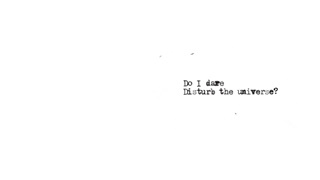
The poet
Line by line


Rosy used to say that New York was a fairground.
‘You will know when it’s time, when the fair is over.’
You, Very Young in New York
I thought of these lines, from Sullivan’s debut collection Three Poems, over and over again as I prepared to leave New York in 2019. I thought of them even as we took off from JFK, looking back through the aeroplane window at the Manhattan skyline, bathed in sandy summer evening light. I felt—I still feel—in love with New York. It’s the sort of love that Joan Didion described in a 1967 essay, ‘Goodbye To All That’: “I do not mean ‘love’ in any colloquial way, I mean that I was in love with the city, the way you love the first person who ever touches you and never love anyone quite that way again.”
I lived in New York for three years, and, when the time came to return to England, I had conflicting feelings about it. As Sullivan says in the second poem of the collection, Repeat Until Time (subtitled, ‘The Heraclitus Poem’): “There is no stepping twice in same or different rivers. | Nor would anyone step once if she first hadn’t shivered”.
It is a particular consolation of poetry to feel able, compelled even, to recognise yourself within its contours. I found Sullivan’s images of New York exhilaratingly precise: the “sky / Square at the end of Fifth”, the “Lego-maze of offices”, the “skip of the Hudson wind”. And then, there is the complicity of the second-person pronoun. I do not think I am the only reader to have thought that Sullivan’s you was, in some way, me.
There is another edge to the use of that pronoun, though, because it is also the poet, or a version of the poet, and it feels autofictive. Remembered scenes are replayed affectionately, but are sharpened by the acidity of age, and experience. Here is Didion’s influence. In ‘Goodbye To All That’, Sullivan told the Los Angeles Review of Books, there is “a tender attachment to a former self that can mingle with something self-mocking and acerbic.” Just so in Sullivan’s poem, where she deftly weaves together a variety of verse forms, depending on mood. At times, the prosody is slow, and spondaic (“Lying awake in the fat pulse of November rain”); at others, it jumps about in bouncy terza rima, like the ice-cubes that “giggle, popping their skins” in a soda glass. The most biting satire is saved for a middle section, written in rhyming couplets worthy of Alexander Pope: “Your friends wear flannel and McDonald’s name badges, | They talk about Ben Bernanke and Isabel Marant wedges.”
I think, in a way, I read Three Poems last summer as a kind of self-help. For me, poetry is a better form of self-help than any other manual to life I have come across.
The lawyer Alexandra Howe is the arts editor of RE:. At the time of writing, Alexandra was preparing to leave the New York office, after three years, to return to London.
© Norton Rose Fulbright US LLP 2025